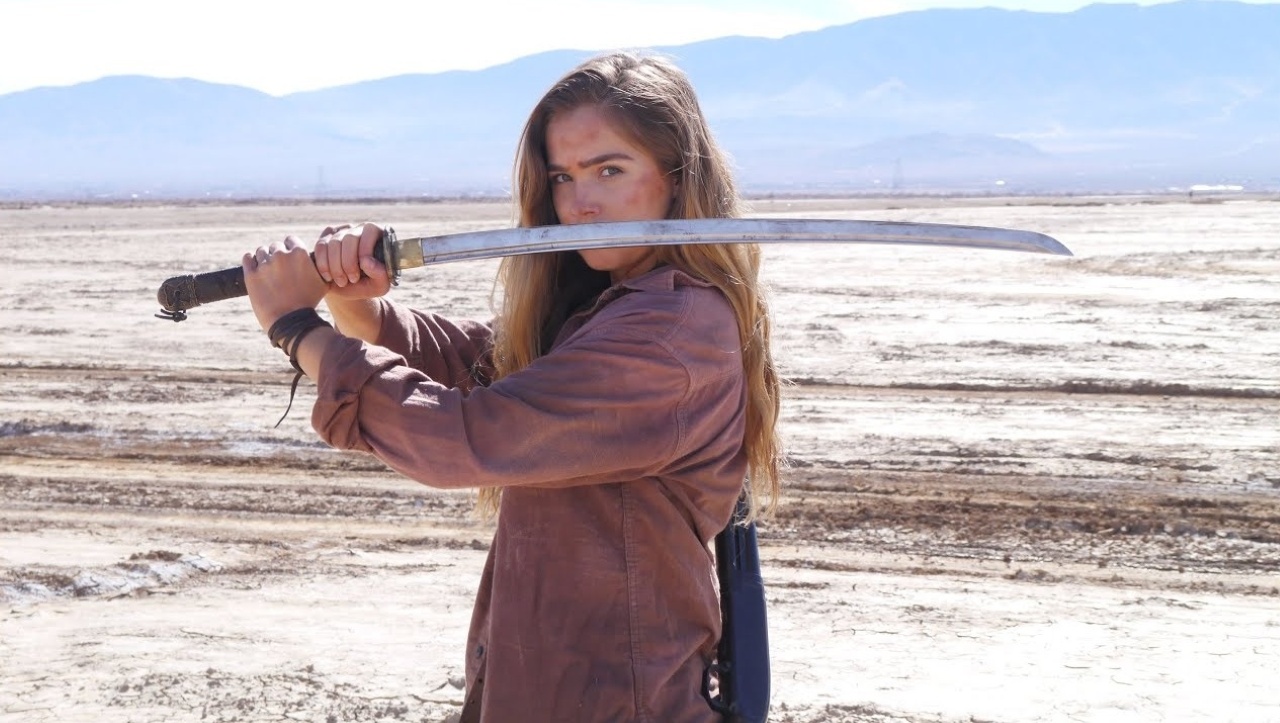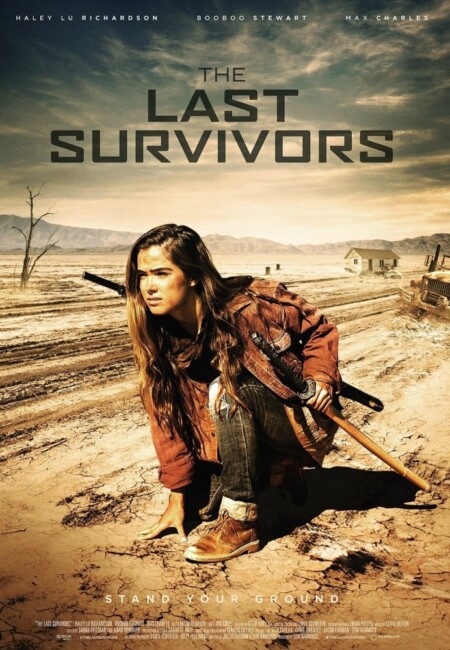aka The Last Survivors
USA. 2014.
Crew
Director – Thomas Hammock, Screenplay – Jacob Forman & Thomas Hammock, Producers – Seth Caplan, Jacob Forman, Chris Harding & Thomas Hammock, Photography – Seamus Tierney, Music – Craig Deleon, Visual Effects Supervisor – Dimitri Loginowski, Special Effects Supervisor – Josh Hakian, Makeup Effects – Ryk Fortuna, Production Design – Sarah M. Pott. Production Company – Federighi Films.
Cast
Haley Lu Richardson (Kendal Crane), Booboo Stewart (Dean), Jon Gries (Carson), Nicole Fox (Brooke), Max Charles (Alby), Michael McCartney (Cadiz), Michael Welch (Gabriel), Michael Massee (Walker), Leo Lee (Judas), Rena Owen (Claire), Barbara Crampton (Grace)
Plot
In the future, the world is suffering from extreme drought. In Oregon, the teenage Kendal tries to survive hiding in the ruins of a house with Dean who is dying of liver failure. They have a supply of water from a well but this is dwindling. The valley where they live has become dominated by the warlord Carson who has started draining all the water from the aquifer on an industrial scale. His troops are also moving across the valley promising to relocate all survivors in camps but massacring everybody who stands in the way.
The Well – no relation to the fine Australian psychological ghost story The Well (1997) – is a directorial debut for Thomas Hammock that did the rounds of international film festivals. Prior to this, Hammock had worked his way up through the art department and gained production designer credits on films such as All the Boys Love Mandy Lane (2006), The Last Exorcism (2010) and on various Adam Wingard films You’re Next (2011) and The Guest (2014). He had previously directed the short film Blood Stained Sword (2010). The film was retitled The Last Survivors for wider release.
The Post-Apocalyptic film has a long and well-trodden history on film that goes all the way back to the 1950s. The work that essentially defined the genre was Mad Max 2 (1981) with its images of mohawked crazies dressed in junkyard chic and action movie emphasis. This emphasis and mode of design fairly much set the bar for the post-holocaust film and is something that every work in the genre since then has owed some source of indebtitude to in one way or another – something that The Well is not entirely free from. It also leaves one wondering just what yet another effort in the genre is capable of adding that the numerous other films in this field have not said in the last three decades.
The one film that changed things was The Road (2009) where the focus went from action to one of bleak and grim survival in a hopeless world. This is an approach that has been taken up by other films in the genre since then such as The Book of Eli (2010), which tried to oddity of trying to be both survivalist drama and action film, The Day (2011) and the subsequent likes of The Survivalist (2015) and The Domestics (2018).

The Well follows in this lead and sets out to change things somewhat. The world we are in is not just post-civilised collapse but also suffering from a severe drought and where the survivors are fighting over the last remaining drops of water, a new twist that changes the standard milieu in interesting ways. Interestingly enough, there was another film with almost identical theme doing the rounds of the festival circuit around the same time with Young Ones (2014), while drought also features in the background of the future depicted in Christopher Nolan’s Interstellar (2014).
Thomas Hammock’s focus throughout is not on the action element but in the brushstrokes that depict the characters and the world of the bare, wide open dust bowl valley they live in. The exchanges are ones of terse survival in this world, not of revving engines and besiegement of civilised enclaves in makeshift vehicles. The Well is not entirely free of this as the last quarter of the film turns into revenge movie mode with Haley Lu Richardson wielding shotgun and samurai sword as she sets out to invade the enclave of Jon Gries’ water baron and singlehandedly eliminate his henchmen before facing down with him. It is a film that never fully transcend the limited plotting elements of the genre nevertheless manages to do imaginatively well on the modest resources that it has.
Trailer here


